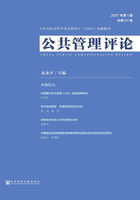
Reassessing the Institutional Analysis and Development Framework
Abstract: The institutional analysis and development(IAD)framework has been used in many empirical studies during the past three decades. This article assesses the relative strengths and weaknesses of the IAD framework as an institutional and policy toolbox by systematically reviewing studies on irrigation systems. Based on numerous publications, the IAD framework, as a meta-theoretical approach, is a useful tool for understanding management challenges, institutional puzzles, and policy problems. The strengths of the IAD framework include a common language for institutional analysis across disciplines and its ability to deal directly with complexities to facilitate research designs to address specific theoretical questions. It is firmly rooted in a rigorous theory of individual behavior. The IAD framework also exposes a number of weaknesses, including high costs of empirical applications due to their examination of multiple physical and social factors, difficulties in mastering the terminologies and subcategories of the framework, sacrificing parsimony for the sake of complexity, and requiring more work on the interactions between the levels of analysis. This article offers a number of directions for expanding the utility of the framework. These include encouraging flexible applications, developing related guidelines or training courses, simplifying the subcategory variables, extracting the elements of theoretical parsimony from the specific empirical findings, and expanding the potential as an applied means for institutional and policy analysis in China.
Key Words: Institutional Analysis and Development Framework; Social-Ecological System Framework; Common Pool Resources; Irrigation System; Policy Analysis